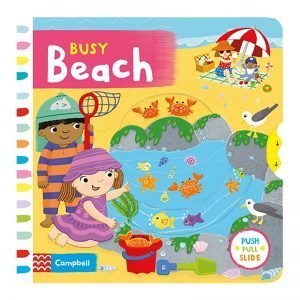
10 ways to make reading fun
for you and your child

Child psychologist Dr, Amanda Gummer believes that reading should be for everyone with the benefits being more important than ever during these uncertain times. “Reading is a wonderful pastime for your child, helping them to relax, learn and de-stress to name a few of the many benefits! It is important to encourage reading from a young age to help them continually build on their literacy skills, but it’s never too late to develop a love of reading.”
What are the main benefits of encouraging a child to enjoy reading?
According to Dr. Gummer, reading develops a wide variety of skills from language skills to memory skills alongside developing creativity and imagination. “Reading helps children to build on their vocabulary whilst challenging them to expand on their knowledge. As they grow older, they will come across differing topics which will not only encourage them to think creatively but will also challenge their perceptions of the world around them.”
To get your children to sit and engage with a book doesn’t need to be thought of as another homeschooling challenge, instead encourage your children to read books that interest them and help them to foster a love of reading along the way.
Here are some of Dr. Gummer’s tips to help you make reading fun for your children:
1. Incorporate books into a child’s daily routine as soon as possible.
Of course, as babies, they won’t understand the stories as such, but they will enjoy listening to your voice, looking at the pages and spending time with you. There are lots of books designed specifically for young babies, which include sensory aspects to help engage them, including crinkly pages, rattles, squeakers and bright, contrasting images.
2. Consider toys that help children to learn letters, sounds, phonics and words.
Dr. Gummer is a passionate advocate of learning through play, and this type of product can be a fun way to encourage early reading skills. As children’s confidence grows with their reading, their enjoyment will too.
3. Use lots of different types of media to read at home alongside books.
Make the most of other types of media to keep reading fun and encourage reading. Magazines, comics, e-books, activity sheets, etc. are all great ways to develop reading and literacy skills and should be encouraged where possible.

4. Make time to play word games as a family.
These games can really help to widen vocabulary and involving the family will make words, reading and learning into a sociable activity too.
5. Include reading apps and e books in screen time.
Apps can be really helpful in encouraging reluctant readers as they incorporate most children’s love of technology with the activity.
6. Extend stories outside of the book.
Encourage your children to re-enact their favourite scenes from their books, talk about the characters, or dress up as some of their much-loved characters. Stories are a great way to inspire children and encourage their creativity.

7. Combine reading with everyday tasks.
Ask your child to read out recipes to you, or get them to keep an eye out for the road you are looking for, choose what they want from a menu, etc. Simple tasks can engage them with learning by stealth in everyday situations.
8. Make sure you are interacting with your child while enjoying books with them, rather than just reading.
Relate items or people to your child’s world, ask them if they can see objects in pictures, continue the story in your own words after the book has ended and make up a quiz about it afterwards.
9. Be your child’s role model.
If they see you reading regularly, they are likely to follow your lead in the early years. Talk about your favourite books as a child and the stories you remember.

10. Don’t try and force reading.
As with all developmental skills, reading develops at different rates in different people, your little one will learn to read in their own time. If you force the issue or put pressure on them, they are far less likely to enjoy and learn.
It is a great time to engage our children in books and reading. Making stories come alive helps to fire up our children’s imaginations and leaves them wanting to read more. This comes with many great developmental benefits as well as the potential for a pastime that provides lifelong enjoyment!







